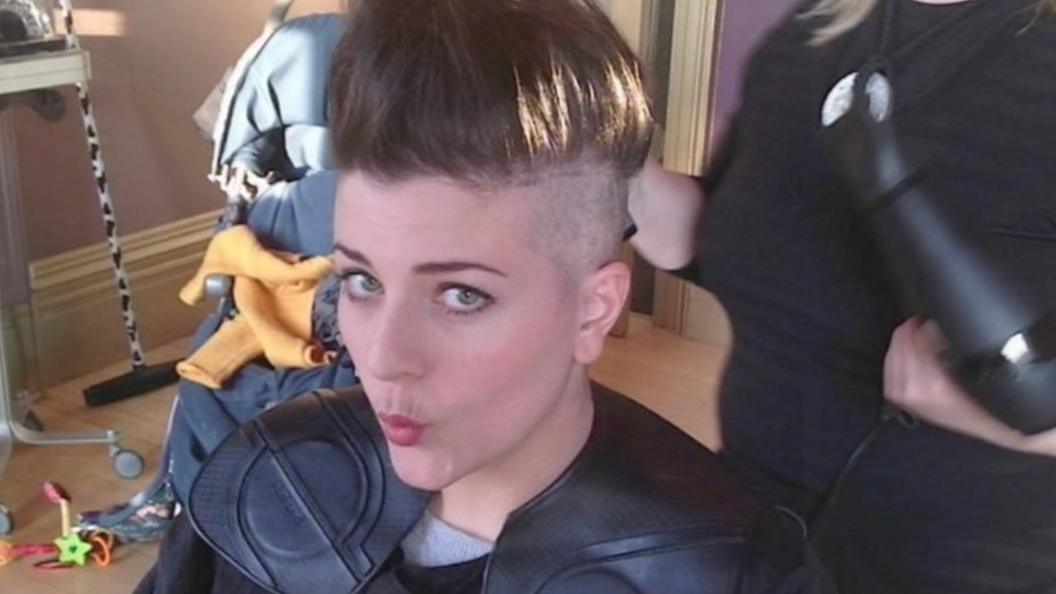Breast asymmetry: Women in Dorset share their experiences
- Published
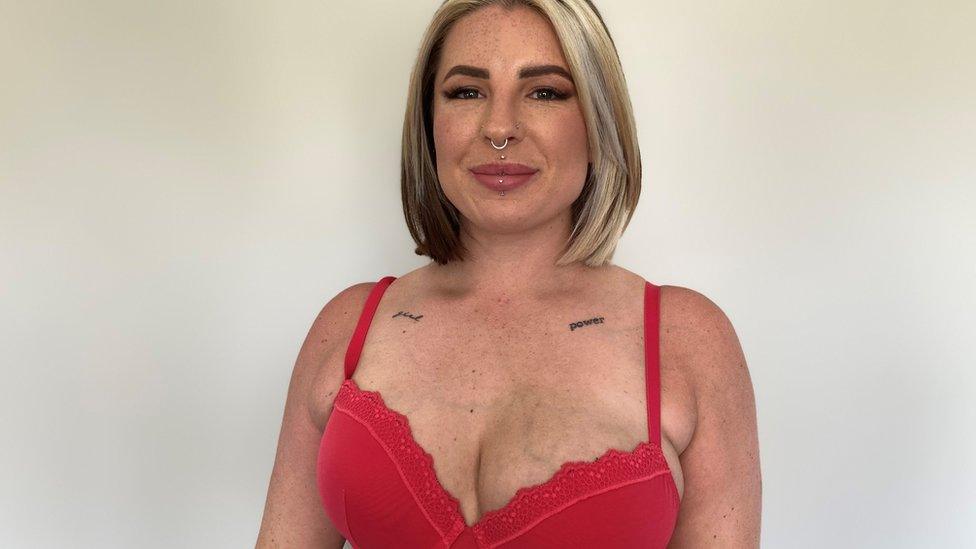
Natalie Di-Pede said she was diagnosed with Poland Syndrome when she was in her 20s
Having two breasts of different sizes was not something Natalie Di-Pede had expected to have to deal with.
The 32-year-old noticed "quite a big difference" between them when she was a teenager which "really affected" her both mentally and emotionally.
Ms Di-Pede, from Wimborne, Dorset, has joined other women to share their experiences to highlight the issue.
Breast asymmetry occurs when one breast has a different size, volume, position or form from the other.
It can be due to various factors, including hormones, menopause and cancer surgeries.
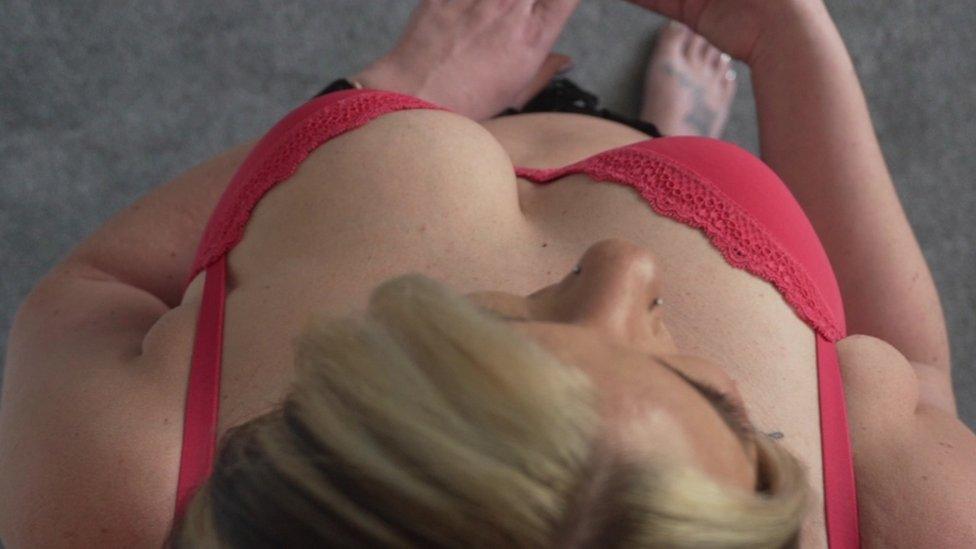
Breast asymmetry occurs when one breast has a different size, volume, position or form from the other
For Ms Di-Pede, her breast asymmetry was due to a condition called Poland Syndrome, external, which is characterised by an underdeveloped or absent chest muscle on one side of the body.
"It really affected me. I would wear certain clothes that sort of covered my chest. I'd hold myself differently," the trainee nurse said.
Prof Joanna Wakefield-Scurr, head of a research group in breast health at the University of Portsmouth, is looking into what can be done to ensure breast asymmetry does not lead to other issues such as back or neck pain, as well as addressing the embarrassment some women feel.
"If we could get the message across that up to 94% of women have one breast larger than the other hopefully that starts to normalise it and it becomes less of a taboo topic area," she said.
Kate Taylor, 38, also from Wimborne, initially thought breast asymmetry was "just unique" to her before talking to others.
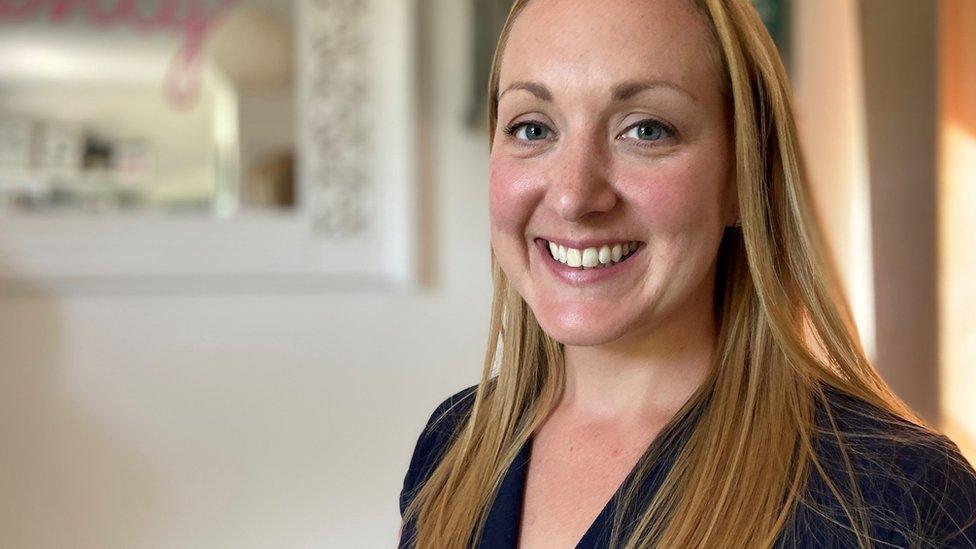
Kate Taylor founded the company Evenly to support other women
"Because it isn't well spoken about, women often think they're alone with this issue," she said.
"Then it sort of perpetuates the problem because they're then not willing to speak out because they think there's something wrong, there's something abnormal, and it just expands from there."
Ms Taylor said the "resounding feedback" from women with asymmetrical breasts was they struggled to find bras that fitted.
Inspired by these conversations, she set up a company and conceived the "bra balancer" - a silicone breast prosthetic specifically formed for breast asymmetry.
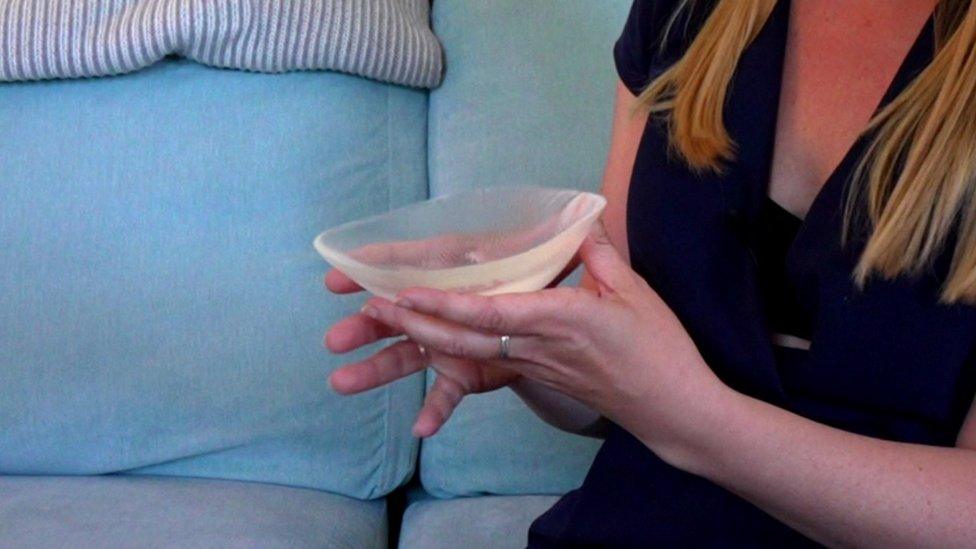
The silicone breast prosthetic has been specifically formed for breast asymmetry
Ms Di-Pede also wanted to remind women it was important to remember "nobody is really paying attention to anybody else's body".
"People spend a lot of time worrying about what other people think and how other people see them."
But she added: "When you are feeling self-conscious, everybody else is feeling self-conscious as well."

Follow BBC South on Facebook, external, Twitter, external, or Instagram, external. Send your story ideas to south.newsonline@bbc.co.uk, external.
- Published23 June 2011
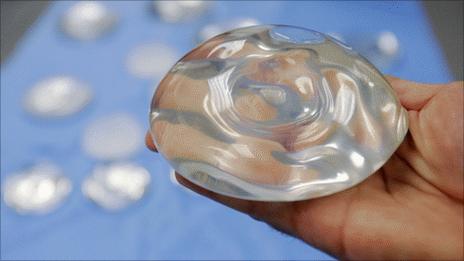
- Published16 October 2013
